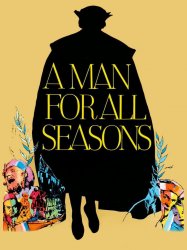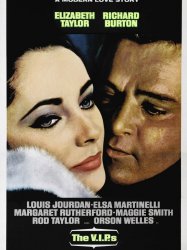Orson Welles is a Actor, Director, Scriptwriter, Producer, Co-Director, Director of Photography, Editor, Production Design, Costume Design, Music Arranger and Other American born on 6 may 1915 at Kenosha (USA)

George Orson Welles (/ˈwɛlz/; May 6, 1915 – October 10, 1985) was an American actor, director, writer, and producer who worked in theatre, radio, and film. He is best remembered for his innovative work in all three: in theatre, most notably Caesar (1937), a Broadway adaptation of William Shakespeare's Julius Caesar; in radio, the 1938 broadcast "The War of the Worlds", one of the most famous in the history of radio; and in film, Citizen Kane (1941), consistently ranked as one of the all-time greatest films.
Welles directed a number of high-profile stage productions for the Federal Theatre Project in his early twenties, including an innovative adaptation of Macbeth with an entirely African American cast, and the political musical The Cradle Will Rock. In 1937 he and John Houseman founded the Mercury Theatre, an independent repertory theatre company that presented an acclaimed series of productions on Broadway through 1941. Welles found national and international fame as the director and narrator of a 1938 radio adaptation of H. G. Wells' novel The War of the Worlds performed for his radio anthology series The Mercury Theatre on the Air. It reportedly caused widespread panic when listeners thought that an invasion by extraterrestrial beings was occurring. Although some contemporary sources claim these reports of panic were mostly false and overstated, they rocketed Welles to notoriety.
His first film was Citizen Kane (1941), which he co-wrote, produced, directed, and starred in as Charles Foster Kane. Welles was an outsider to the studio system and directed only 13 full-length films in his career. Because of this, he struggled for creative control from the major film studios, and his films were either heavily edited or remained unreleased. His distinctive directorial style featured layered and nonlinear narrative forms, innovative uses of lighting such as chiaroscuro, unusual camera angles, sound techniques borrowed from radio, deep focus shots, and long takes. He has been praised as a major creative force and as "the ultimate auteur".
Welles followed up Citizen Kane with critically acclaimed films including The Magnificent Ambersons in 1942 and Touch of Evil in 1958. Although these three are his most acclaimed films, critics have argued other works of his, such as The Lady from Shanghai (1947) and Chimes at Midnight (1966), are underappreciated.
In 2002, Welles was voted the greatest film director of all time in two British Film Institute polls among directors and critics, and a wide survey of critical consensus, best-of lists, and historical retrospectives calls him the most acclaimed director of all time. Well known for his baritone voice, Welles was a well-regarded actor in radio and film, a celebrated Shakespearean stage actor, and an accomplished magician noted for presenting troop variety shows in the war years.
Orson Welles and Chicago-born actress and socialite Virginia Nicolson (1916–1996) were married on November 14, 1934. The couple separated in December 1939, and divorced February 1, 1940. After bearing with Welles's romances in New York, Virginia had learned that Welles had fallen in love with Mexican actress Dolores del Río.
Infatuated with her since adolescence, Welles met del Río at Darryl Zanuck's ranch soon after he moved to Hollywood in 1939. Their relationship was kept secret until 1941, when del Río filed for divorce from her second husband. They openly appeared together in New York while Welles was directing the Mercury stage production, Native Son. They acted together in the movie Journey into Fear (1943). Their relationship came to an end, among other things, due to the infidelities of Welles. Del Río returned to México in 1943, shortly before Welles married Rita Hayworth.
Welles married Rita Hayworth September 7, 1943. They were divorced November 10, 1947. During his last interview, recorded for The Merv Griffin Show on the evening before his death, Welles called Hayworth "one of the dearest and sweetest women that ever lived … and we were a long time together — I was lucky enough to have been with her longer than any of the other men in her life."
In 1955, Welles married actress Paola Mori (née Countess Paola di Girifalco), an Italian aristocrat who starred as Raina Arkadin in his 1955 film, Mr. Arkadin. The couple had embarked on a passionate affair, and they were married at her parents' insistence. They were wed in London May 8, 1955, and never divorced.
Croatian-born artist and actress Oja Kodar became Welles's longtime companion both personally and professionally from 1966 onwards, and they lived together for some of the last 20 years of his life.
Welles had three daughters from his marriages: Christopher Welles Feder (born March 27, 1938, with Virginia Nicolson); Rebecca Welles Manning (December 17, 1944 – October 17, 2004, with Rita Hayworth); and Beatrice Welles (born November 13, 1955, with Paola Mori).
Welles is thought to have a son, British director Michael Lindsay-Hogg (born May 5, 1940), from an affair with Irish actress Geraldine Fitzgerald, then the wife of Sir Edward Lindsay-Hogg, 4th baronet. When Lindsay-Hogg was 16 his mother reluctantly divulged that there were pervasive rumors that his father was Welles, and she denied them — but in such detail that he was left confused and dubious. Fitzgerald evaded the subject for the rest of her life. Lindsay-Hogg knew Welles, worked with him in the theatre and met him at intervals throughout Welles's life. After he learned that Welles's oldest daughter Chris, his childhood playmate, had long suspected that he was her brother, Lindsay-Hogg initiated a DNA test that proved inconclusive. In his 2011 autobiography Lindsay-Hogg reported that his questions were resolved by his mother's close friend Gloria Vanderbilt, who wrote that Fitzgerald had told her that Welles was his father. A forthcoming 2015 biography by Patrick McGilligan reportedly documents the impossibility of Welles's paternity.
After the death of Rebecca Welles Manning, a man named Marc McKerrow was revealed to be her son, and therefore the direct descendant of Orson Welles and Rita Hayworth. McKerrow's reactions to the revelation and his meeting with Oja Kodar are documented in the 2008 film Prodigal Sons. McKerrow died June 18, 2010.
Despite an urban legend promoted by Welles himself, he was not related to Abraham Lincoln's wartime Secretary of the Navy, Gideon Welles. The myth dates back to the first newspaper feature ever written about Welles — "Cartoonist, Actor, Poet and only 10" — in the February 19, 1926, issue of The Capital Times. The article falsely states that he was descended from "Gideon Welles, who was a member of President Lincoln's cabinet". As presented by Charles Higham in a genealogical chart that introduces his 1985 biography of Welles, Orson Welles's father was Richard Head Welles (born Wells), son of Richard Jones Wells, son of Henry Hill Wells (who had an uncle named Gideon Wells), son of William Hill Wells, son of Richard Wells (1734–1801).
Physical characteristics
In his 1956 biography, Peter Noble describes Welles as "a magnificent figure of a man, over six feet tall, handsome, with flashing eyes and a gloriously resonant speaking-voice". Welles said that a voice specialist once told him he was born to be a heldentenor, a heroic tenor, but that when he was young and working at the Gate Theatre he forced his voice down into a bass-baritone.
Even as a baby Welles was prone to illness, including diphtheria, measles, whooping cough and malaria. From infancy he suffered from asthma, sinus headaches, and backache that was later found to be caused by congenital anomalies of the spine. Foot and ankle trouble throughout his life was the result of flat feet. "As he grew older," Brady wrote, "his ill health was exacerbated by the late hours he was allowed to keep [and] an early penchant for alcohol and tobacco".
In 1928, at age 13, Welles was already more than six feet tall and weighed over 180 pounds. His passport recorded his height as six feet three inches, with brown hair and green eyes.
"Crash diets, drugs, and corsets had slimmed him for his early film roles," wrote biographer Barton Whaley. "Then always back to
gargantuan consumption of high-caloric food and booze. By summer 1949, when he was 34, his weight had crept up to a stout 230 pounds. In 1953 he ballooned from 250 to 275 pounds. After 1960 he remained permanently obese."
Religious beliefs
When Peter Bogdanovich once asked him about his religion, Orson Welles gruffly replied that it was none of his business, then misinformed him that he was raised Catholic.
Although the Welles family was no longer devout, it was fourth-generation Protestant Episcopalian and, before that, Quaker and Puritan. Welles's earliest paternal forebear in America, Richard Wells, was a leader of the Quaker community in Pennsylvania. His earliest maternal ancestor in America was John Alden, a crew member on the Pilgrim ship Mayflower.
The funeral of Welles's father Richard H. Welles was Episcopalian.
In April 1982, when interviewer Merv Griffin asked him about his religious beliefs, Welles replied, "I try to be a Christian. I don't pray really, because I don't want to bore God." Near the end of his life Welles was dining at Ma Maison, his favorite restaurant in Los Angeles, when proprietor Patrick Terrail conveyed an invitation from the head of the Greek Orthodox Church, who asked Welles to be his guest of honor at divine liturgy at Saint Sophia Cathedral. Welles replied, "Please tell him I really appreciate that offer, but I am an atheist."
"Orson never joked or teased about the religious beliefs of others," wrote biographer Barton Whaley. "He accepted it as a cultural artifact, suitable for the births, deaths, and marriages of strangers and even some friends — but without emotional or intellectual meaning for himself."
Source : Wikidata
Orson Welles

Birth name George Orson Welles
Nationality USA
Birth 6 may 1915 at Kenosha (USA)
Death 10 october 1985 (at 70 years) at Los Angeles (USA)
Nationality USA
Birth 6 may 1915 at Kenosha (USA)
Death 10 october 1985 (at 70 years) at Los Angeles (USA)
George Orson Welles (/ˈwɛlz/; May 6, 1915 – October 10, 1985) was an American actor, director, writer, and producer who worked in theatre, radio, and film. He is best remembered for his innovative work in all three: in theatre, most notably Caesar (1937), a Broadway adaptation of William Shakespeare's Julius Caesar; in radio, the 1938 broadcast "The War of the Worlds", one of the most famous in the history of radio; and in film, Citizen Kane (1941), consistently ranked as one of the all-time greatest films.
Welles directed a number of high-profile stage productions for the Federal Theatre Project in his early twenties, including an innovative adaptation of Macbeth with an entirely African American cast, and the political musical The Cradle Will Rock. In 1937 he and John Houseman founded the Mercury Theatre, an independent repertory theatre company that presented an acclaimed series of productions on Broadway through 1941. Welles found national and international fame as the director and narrator of a 1938 radio adaptation of H. G. Wells' novel The War of the Worlds performed for his radio anthology series The Mercury Theatre on the Air. It reportedly caused widespread panic when listeners thought that an invasion by extraterrestrial beings was occurring. Although some contemporary sources claim these reports of panic were mostly false and overstated, they rocketed Welles to notoriety.
His first film was Citizen Kane (1941), which he co-wrote, produced, directed, and starred in as Charles Foster Kane. Welles was an outsider to the studio system and directed only 13 full-length films in his career. Because of this, he struggled for creative control from the major film studios, and his films were either heavily edited or remained unreleased. His distinctive directorial style featured layered and nonlinear narrative forms, innovative uses of lighting such as chiaroscuro, unusual camera angles, sound techniques borrowed from radio, deep focus shots, and long takes. He has been praised as a major creative force and as "the ultimate auteur".
Welles followed up Citizen Kane with critically acclaimed films including The Magnificent Ambersons in 1942 and Touch of Evil in 1958. Although these three are his most acclaimed films, critics have argued other works of his, such as The Lady from Shanghai (1947) and Chimes at Midnight (1966), are underappreciated.
In 2002, Welles was voted the greatest film director of all time in two British Film Institute polls among directors and critics, and a wide survey of critical consensus, best-of lists, and historical retrospectives calls him the most acclaimed director of all time. Well known for his baritone voice, Welles was a well-regarded actor in radio and film, a celebrated Shakespearean stage actor, and an accomplished magician noted for presenting troop variety shows in the war years.
Biography
Relationships and familyOrson Welles and Chicago-born actress and socialite Virginia Nicolson (1916–1996) were married on November 14, 1934. The couple separated in December 1939, and divorced February 1, 1940. After bearing with Welles's romances in New York, Virginia had learned that Welles had fallen in love with Mexican actress Dolores del Río.
Infatuated with her since adolescence, Welles met del Río at Darryl Zanuck's ranch soon after he moved to Hollywood in 1939. Their relationship was kept secret until 1941, when del Río filed for divorce from her second husband. They openly appeared together in New York while Welles was directing the Mercury stage production, Native Son. They acted together in the movie Journey into Fear (1943). Their relationship came to an end, among other things, due to the infidelities of Welles. Del Río returned to México in 1943, shortly before Welles married Rita Hayworth.
Welles married Rita Hayworth September 7, 1943. They were divorced November 10, 1947. During his last interview, recorded for The Merv Griffin Show on the evening before his death, Welles called Hayworth "one of the dearest and sweetest women that ever lived … and we were a long time together — I was lucky enough to have been with her longer than any of the other men in her life."
In 1955, Welles married actress Paola Mori (née Countess Paola di Girifalco), an Italian aristocrat who starred as Raina Arkadin in his 1955 film, Mr. Arkadin. The couple had embarked on a passionate affair, and they were married at her parents' insistence. They were wed in London May 8, 1955, and never divorced.
Croatian-born artist and actress Oja Kodar became Welles's longtime companion both personally and professionally from 1966 onwards, and they lived together for some of the last 20 years of his life.
Welles had three daughters from his marriages: Christopher Welles Feder (born March 27, 1938, with Virginia Nicolson); Rebecca Welles Manning (December 17, 1944 – October 17, 2004, with Rita Hayworth); and Beatrice Welles (born November 13, 1955, with Paola Mori).
Welles is thought to have a son, British director Michael Lindsay-Hogg (born May 5, 1940), from an affair with Irish actress Geraldine Fitzgerald, then the wife of Sir Edward Lindsay-Hogg, 4th baronet. When Lindsay-Hogg was 16 his mother reluctantly divulged that there were pervasive rumors that his father was Welles, and she denied them — but in such detail that he was left confused and dubious. Fitzgerald evaded the subject for the rest of her life. Lindsay-Hogg knew Welles, worked with him in the theatre and met him at intervals throughout Welles's life. After he learned that Welles's oldest daughter Chris, his childhood playmate, had long suspected that he was her brother, Lindsay-Hogg initiated a DNA test that proved inconclusive. In his 2011 autobiography Lindsay-Hogg reported that his questions were resolved by his mother's close friend Gloria Vanderbilt, who wrote that Fitzgerald had told her that Welles was his father. A forthcoming 2015 biography by Patrick McGilligan reportedly documents the impossibility of Welles's paternity.
After the death of Rebecca Welles Manning, a man named Marc McKerrow was revealed to be her son, and therefore the direct descendant of Orson Welles and Rita Hayworth. McKerrow's reactions to the revelation and his meeting with Oja Kodar are documented in the 2008 film Prodigal Sons. McKerrow died June 18, 2010.
Despite an urban legend promoted by Welles himself, he was not related to Abraham Lincoln's wartime Secretary of the Navy, Gideon Welles. The myth dates back to the first newspaper feature ever written about Welles — "Cartoonist, Actor, Poet and only 10" — in the February 19, 1926, issue of The Capital Times. The article falsely states that he was descended from "Gideon Welles, who was a member of President Lincoln's cabinet". As presented by Charles Higham in a genealogical chart that introduces his 1985 biography of Welles, Orson Welles's father was Richard Head Welles (born Wells), son of Richard Jones Wells, son of Henry Hill Wells (who had an uncle named Gideon Wells), son of William Hill Wells, son of Richard Wells (1734–1801).
Physical characteristics
In his 1956 biography, Peter Noble describes Welles as "a magnificent figure of a man, over six feet tall, handsome, with flashing eyes and a gloriously resonant speaking-voice". Welles said that a voice specialist once told him he was born to be a heldentenor, a heroic tenor, but that when he was young and working at the Gate Theatre he forced his voice down into a bass-baritone.
Even as a baby Welles was prone to illness, including diphtheria, measles, whooping cough and malaria. From infancy he suffered from asthma, sinus headaches, and backache that was later found to be caused by congenital anomalies of the spine. Foot and ankle trouble throughout his life was the result of flat feet. "As he grew older," Brady wrote, "his ill health was exacerbated by the late hours he was allowed to keep [and] an early penchant for alcohol and tobacco".
In 1928, at age 13, Welles was already more than six feet tall and weighed over 180 pounds. His passport recorded his height as six feet three inches, with brown hair and green eyes.
"Crash diets, drugs, and corsets had slimmed him for his early film roles," wrote biographer Barton Whaley. "Then always back to
gargantuan consumption of high-caloric food and booze. By summer 1949, when he was 34, his weight had crept up to a stout 230 pounds. In 1953 he ballooned from 250 to 275 pounds. After 1960 he remained permanently obese."
Religious beliefs
When Peter Bogdanovich once asked him about his religion, Orson Welles gruffly replied that it was none of his business, then misinformed him that he was raised Catholic.
Although the Welles family was no longer devout, it was fourth-generation Protestant Episcopalian and, before that, Quaker and Puritan. Welles's earliest paternal forebear in America, Richard Wells, was a leader of the Quaker community in Pennsylvania. His earliest maternal ancestor in America was John Alden, a crew member on the Pilgrim ship Mayflower.
The funeral of Welles's father Richard H. Welles was Episcopalian.
In April 1982, when interviewer Merv Griffin asked him about his religious beliefs, Welles replied, "I try to be a Christian. I don't pray really, because I don't want to bore God." Near the end of his life Welles was dining at Ma Maison, his favorite restaurant in Los Angeles, when proprietor Patrick Terrail conveyed an invitation from the head of the Greek Orthodox Church, who asked Welles to be his guest of honor at divine liturgy at Saint Sophia Cathedral. Welles replied, "Please tell him I really appreciate that offer, but I am an atheist."
"Orson never joked or teased about the religious beliefs of others," wrote biographer Barton Whaley. "He accepted it as a cultural artifact, suitable for the births, deaths, and marriages of strangers and even some friends — but without emotional or intellectual meaning for himself."
Best films
Usually with
Filmography of Orson Welles (156 films)
Actor

The Other Side of the Wind (2018)
, 2h2Directed by Orson Welles
Origin USA
Genres Drama, Comedy
Actors John Huston, Peter Bogdanovich, Norman Foster, Lilli Palmer, Robert Random, Joseph McBride
Roles Journalist (uncredited)
Rating66%





Un vieux réalisateur, J.J. Hannaford, mélange de John Ford et d'Ernest Hemingway fait son retour à Hollywood après plusieurs années d'exil en Europe. Il est en train de finir un nouveau film avec lequel il veut mettre au défi, sur le terrain, « toute la palette du jeune cinéma américain, depuis les cinéphiles mélancoliques jusqu'à Andy Warhol ». Une fête est organisée en son honneur dans son ranch par tout le gratin hollywoodien à l'occasion de son soixante-dixième anniversaire. Cette soirée se terminera par la mort du réalisateur au volant de la voiture de sport qu'il voulait offrir à son acteur favori, sans que l'on sache s'il s'agit d'un accident ou d'un suicide.
 , 1h35
, 1h35Origin USA
Genres Documentary
Themes Films about writers, Documentary films about business, Documentary films about the film industry
Actors Orson Welles, Peter Bogdanovich, Julie Taymor, Steven Spielberg, Martin Scorsese, Elvis Mitchell
Roles Self - Filmmaker / Various Roles (archive footage)
Rating68%






Free Birds (2013)
, 1h32Directed by Martin Scorsese, Jimmy Hayward
Origin USA
Genres Comedy, Animation
Themes Films about animals, Environmental films, Time travel films, Films about birds, Political films, Buddy films, Children's films
Actors Owen Wilson, Woody Harrelson, Amy Poehler, Dan Fogler, Lesley Nicol, George Takei
Roles sex
Rating58%





Reggie the turkey has always been afraid of Thanksgiving because turkeys have always been on the menu, but his attempts to warn his farm-based flock constantly fall on deaf ears and has made him an outcast. When the other turkeys finally realize what is going on, they throw Reggie outside in an attempt to save themselves. In a surprise twist of fate, he winds up being named the "pardoned turkey" by the President of the United States and is subsequently taken to Camp David. Although initially hesitant, Reggie soon eases into a routine of doing nothing but enjoying pizza delivered to him by the "Pizza Dude" and watching Mexican telenovelas.

Jodorowsky's Dune (2013)
, 1h30Origin USA
Genres Drama, Documentary
Themes Films about films, Documentary films about business, Documentary films about the film industry, Documentary films about films
Actors Alejandro Jodorowsky, Michel Seydoux, Nicolas Winding Refn, Brontis Jodorowsky, Amanda Lear, Richard Stanley
Roles Self (archive footage)
Rating79%





Au début des années 1970, après les succès en Europe des films El Topo et La Montagne sacrée, le producteur français Michel Seydoux propose au réalisateur Alejandro Jodorowsky de produire son prochain film, lui laissant carte blanche. Jodorowsky se lance alors dans son projet le plus ambitieux : l'adaptation du roman Dune de Frank Herbert, qu'il n'a pas lu au départ, donnant par hasard le nom de cette œuvre à Seydoux car il en a entendu du bien par un ami. Mais, stimulé par le roman, il souhaite en faire une expérience spirituelle qui changera la vision des spectateurs, ce projet devenant pour lui un idéal mystique et conceptuel, du fait notamment de la présence dans le roman de l'épice, qu'il relie avec les excès de son époque (utilisation du LSD par les hippies, etc.).
 , 1h26
, 1h26Origin United-kingdom
Genres Documentary
Themes Documentary films about business, Documentary films about the visual arts, Documentary films about the film industry, Documentaire sur une personnalité
Actors Marlene Dietrich, Jack Cardiff, Martin Scorsese, Orson Welles, Leslie Caron, Kirk Douglas
Roles Genghis Khan / Bayan (archive footage)
Rating75%





En 2001, Jack Cardiff (1914-2009) est devenu le premier directeur de la photographie de l'histoire des Oscars à recevoir un Oscar d'honneur. Mais la première fois qu'il a serré la célèbre statuette dans sa main, c'était un demi-siècle plus tôt, lorsque son travail de caméra en Technicolor avait été récompensé pour le Narcisse noir de Powell et Pressburger. Au-delà de The African Queen de John Huston et de War and Peace de King Vidor, les films du duo créatif britannico-hongrois (The Red Shoes et A Matter of Life and Death également) garantissent l'immortalité au célèbre caméraman dont la carrière s'étend sur soixante-dix ans.
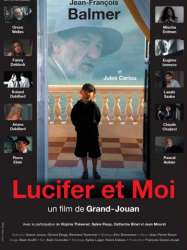
Lucifer et moi (2009)
, 1h45Directed by Jean-Jacques Grand-Jouan
Origin France
Genres Drama, Comedy
Themes Films about religion, Demons in film
Actors Jean-François Balmer, Orson Welles, Roland Dubillard, Pierre Étaix, Claude Chabrol, László Szabó
Roles (archive footage 1982)
Un homme écrit. Quoi ? Son histoire ou le scénario d'un film. Il a du mal, en confie la tâche à son double, Lucifer.

Apple Jack (2003)
, 16minutesOrigin USA
Genres Drama, Comedy
Themes Films about extraterrestrial life, Films about extraterrestrial life
Actors Sean Bridgers, Eugene Dynarski, Walton Goggins, Dylan Sprouse, Orson Welles, Cole Sprouse
Roles (voice) (archive footage)
Rating63%





On October 30 in 1938, UFO reports about sightings over the United States are heard on CBS radio, and members of a neighborhood gets ready to fight the incoming extraterrestrials. That same night, two notorious criminals run away and are never heard from again.

Lost in La Mancha (2002)
, 1h33Origin United-kingdom
Genres Documentary
Themes Films about films, Documentary films about business, Documentary films about the film industry, Documentary films about films, Buddy films
Actors Jeff Bridges, Terry Gilliam, Johnny Depp, Jean Rochefort, Vanessa Paradis, Tony Grisoni
Roles Self (archive footage)
Rating72%





Pendant l'été 2000 en Espagne, Fulton et Pepe suivent, pour en réaliser le making of, le tournage de ce qui aurait dû être The Man Who Killed Don Quixote, un film que projette de réaliser Terry Gilliam depuis plusieurs années. Jean Rochefort doit tenir le rôle de Don Quichotte. Johnny Depp et Vanessa Paradis font également partie de la distribution. Cependant, le tournage tourne vite à la catastrophe : problèmes d'organisation, conflits personnels, vols intempestifs de F16 de l'armée de l'air américaine basée en Espagne sur le site de tournage, pluie diluvienne dans un lieu désertique qui dégrade le matériel et altère le décor – le désert servant de lieu de tournage devenant verdoyant le lendemain du déluge –, maladie de Jean Rochefort qui empêchera celui-ci de jamais remonter à cheval et l'écarte des plateaux.
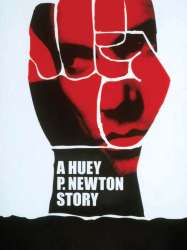
A Huey P. Newton Story (2001)
, 1h26Directed by Spike Lee
Origin USA
Genres Drama, Documentary
Themes Films based on plays
Actors Marlon Brando, Roger Guenveur Smith, Orson Welles
Roles Self (archive footage) (uncredited)
Rating70%





Le film écrit et interprété par Roger Guenveur Smith est la captation d'une représentation d'un spectacle de retraçant la vie de l'activiste afro-américain Huey P. Newton, cofondateur du Black Panther Party.

The Battle Over Citizen Kane (1996)
, 1h53Directed by Michael Epstein
Origin USA
Genres Documentary
Themes Films about films, Films about writers, Films about television, Documentary films about business, Documentary films about the film industry, Documentaire sur une personnalité, Documentary films about films
Actors Orson Welles, Paul Winfield, Peter Bogdanovich, Robert Wise
Rating0%





In Citizen Kane, Welles plays Charles Foster Kane, whose fictional life partially mirrors that of Hearst's. However, Chicago inventor and utilities magnate Samuel Insull, Chicago Tribune publisher Robert R. McCormick, and even Welles's own life were used in creating Kane.
 , 3h45
, 3h45Directed by Martin Scorsese
Origin USA
Genres Documentary
Themes Films about films, Documentary films about business, Documentary films about the film industry, Documentaire sur une personnalité
Actors Martin Scorsese, Kathryn Bigelow, Frank Capra, John Cassavetes, Francis Ford Coppola, Brian De Palma
Roles Self
Rating85%





Martin Scorsese, célèbre réalisateur américain, énumère les films américains qui l'ont marqué et qui ont influencé son œuvre. Son voyage à travers le cinéma commence au début du siècle pour se terminer en 1969, date de son premier film : Who's That Knocking at My Door.

Get Shorty (1995)
, 1h45Directed by Barry Sonnenfeld
Origin USA
Genres Thriller, Comedy, Mob film, Action, Crime
Themes Films about films, Mafia films, Gangster films
Actors John Travolta, Gene Hackman, Rene Russo, Danny DeVito, Dennis Farina, Dwayne Johnson
Rating68%





Chili Palmer, a loan shark based in Miami, clashes with mobster, Ray "Bones" Barboni over a leather jacket borrowed from Palmer at a restaurant without permission by Mr. Barboni. They have two confrontations, the first of which leaves Barboni with a broken nose. Barboni then wants his boss Jimmy Capp to go after Palmer, but he refuses, as Palmer has done nothing wrong. Barboni took the jacket without permission, and Chili's car keys were in the jacket. Jimmy also tells Bones that Chili works for another mafioso named Momo and Capp has no power over him. But soon after Palmer's boss, Momo, dies of a heart attack, Chili finds himself working for Barboni, whose first order is for Palmer to collect a loan shark debt owed by dry cleaner Leo Devoe. Devoe was believed to have been killed in a commercial airliner crash, but in truth had actually gotten off the plane, and failed to re-board because he was getting drunk in the airport bar. After the plane crash, Devoe's wife identified his personal effects, and the airline quickly offers her an insurance check for $300,000. Faye carelessly gives Leo the insurance money, and he heads out of Miami. When Chili visits Leo's "widow" Faye, she reveals to Palmer that Leo is still alive, has left Miami, and is partying and winning money in Las Vegas, Nevada.

La Classe américaine (1993)
, 1h10Directed by Michel Hazanavicius, Dominique Mézerette
Origin France
Genres Comedy, Crime
Actors John Wayne, Christine Delaroche, Dustin Hoffman, Burt Lancaster, Robert Redford, Marc Cassot
Roles Self (archive footage)
Rating78%





The film begins with the following lines appearing on screen, complete with deliberate spelling mistakes: "Attention! Ce flim n'est pas un flim sur le cyclimse. Merci de votre compréhension." ("Attention! This flim is not a flim about cyclign. Thank you for your understanding.")
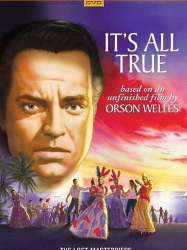
It's All True (1993)
Directed by Norman Foster, Orson Welles, Richard Wilson
Genres Documentary
Themes Films about films, Documentary films about business, Documentary films about the film industry, Documentary films about films
Actors Miguel Ferrer, Orson Welles, Carmen Miranda
Roles Self
Rating74%





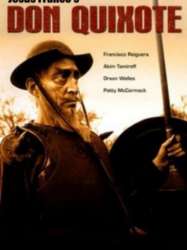
Don Quixote (1992)
Directed by Orson Welles, Jesús Franco
Origin Espagne
Genres Drama, Comedy, Fantasy, Adventure, Historical
Themes Buddy films
Actors Akim Tamiroff, Paola Mori, Orson Welles, Patty McCormack, Fernando Rey, Constantino Romero
Roles Self
Rating60%





Les aventures du Chevalier à la triste figure perdu entre la Terre et la Lune, confrontant le monde ancien à la modernité, dans une Espagne rêvée et reconstituée qui le conduit de la Manche à Pampelune en passant par l’Estrémadure… accompagné de son fidèle serviteur.
 Connection
Connection
